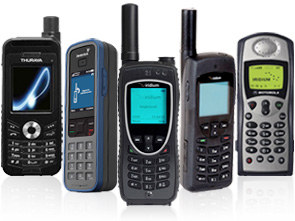
Nothing Phony About Latitude’s Iridium Reports
"We read an article in a recent Latitude about Iridium satellite phones," write Victor and Jo Ann Zarzhitsky of the Portland-based Whitby 42 Odessa Mama, "but got the feeling it was written by a salesperson for Iridium. As such, we are interested in hearing from cruisers as to which satellite phones work well, which don’t work so well, and some of their experiences using satellite phones. If you could put our letter out there for a response, we would appreciate it.
By the way, I participated in the 2008 Baja Ha-Ha, and did the Bash back in 2009. I used a rental Iridium phone and was disappointed in the service."
Victor and Jo Ann: Everything published in Latitude about the Iridium satphone was written by the Wanderer/Grand Poobah — who, by the way, paid retail for his Iridium phone and minutes. Our opinions were based on our using an Iridium satphone since almost the beginning of the Ha-Ha, in Mexico during the season and on the Bash, in the Caribbean each year, and while interviewing people in the middle of the ocean who were on Iridium phones — such as Gino Morrelli during last year’s TransPac. We ain’t no shill for Iridium.

Our main complaint with Iridium was that the transmissions didn’t seem very clear on the original Iridium phones — which are still available. When we bought the newer model, we noticed a considerable improvement.
It’s true, our Iridium has dropped calls. That said, we don’t think it had dropped them any more frequently than our iPhone through AT&T.
For what it’s worth, we believe that the Iridium is the overwhelming choice of cruisers and racers who go bluewater. We should also note that unlike many cruisers, we haven’t tried to use our Iridium to get GRIB files, or to send and receive compressed emails. If someone would like to give us a ‘dummies’ guide’ to getting GRIB files via Iridium, we’re all ears.
The two main competitors to Iridium are Globalstar and Inmarsat. While there can be short interruptions of service at higher latitudes with Iridium, it really does cover the globe. That’s not true with Globalstar, which uses so-called ‘bent pipe’ technology, which requires a land station, and thus is only good for — depending on the situation — 100 to 250 miles offshore. Furthermore, it’s been our firsthand experience that Globalstar has exaggerated what they claim to be their coverage area. For instance, we tried to use our Globalstar countless times when sailing from Antigua to Panama, an area that they claim to cover. We could never get a single call through, while those with Iridiums had no trouble.
There was another year when a Globalstar satellite was down for the coast of Mexico right before the start of the Ha-Ha, and they failed to alert us. That could have left the Grand Poobah without a way to get weather from Commander’s Weather, and also meant we would have been without our primary emergency connection. We found that to be unconscionable.
The folks at Spot/Globalstar are apparently in the process of sending us a new phone/internet device. We’ll report on it as soon as possible.
To tell you the truth, we don’t know that much about Inmarsat, other than we always perceived it as a much more expensive big-boat solution than Iridium. But one that, like Iridium, worked around the world.
That’s our satphone story and we’re sticking to it. As we’ve written before, if it came to having to choose between an Iridium and an EPIRB, we’d go with the Iridium because the phone’s two-way capability makes it much more versatile.
We welcome the real-world experiences and opinions of those who have used Iridium or competing satphones. And don’t be shy if your opinion and experience is different from ours.
